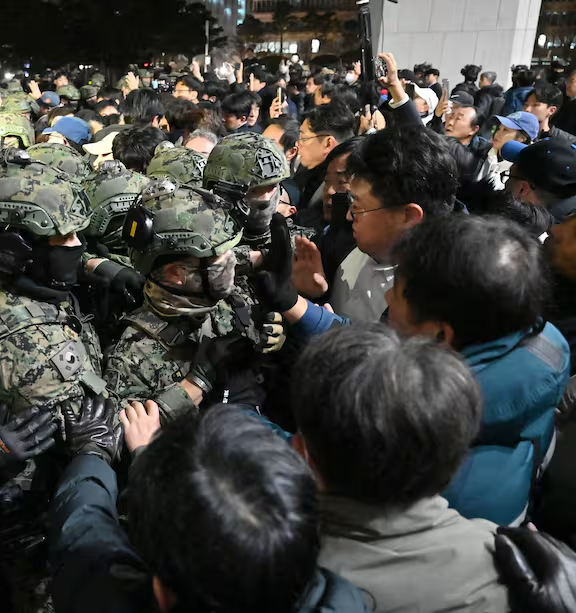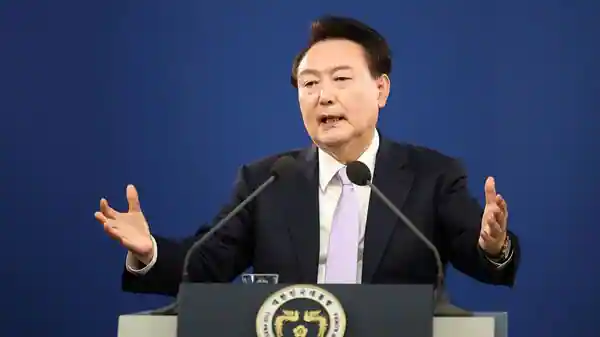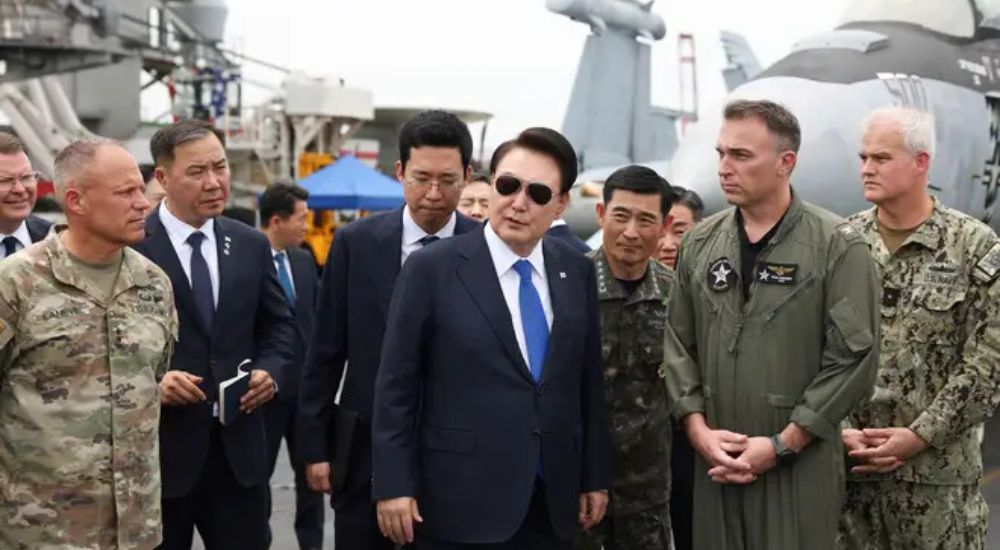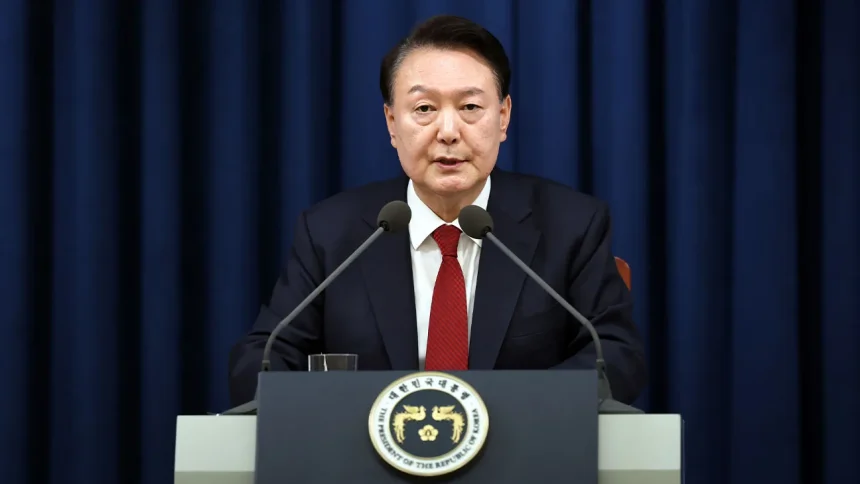South Korea’s President Yoon Suk Yeol, on Tuesday, declared emergency martial law stating what he describe as an existential threat to the nation’s liberal democratic order. The President made the announcement during a live televised address, where Yoon accused the opposition of acting as “anti-state forces intent on overthrowing the regime.”
The declaration comes amid a heated tie between Yoon’s conservative People Power Party and the opposition Democratic Party over the nation’s 2024 budget.
Last week, opposition lawmakers, who hold a majority in the 300-member National Assembly, approved a significantly reduced version of Yoon’s proposed 677 trillion won ($507 billion) budget. The revisions slashed approximately 4.1 trillion won ($2.8 billion) from the initial plan, targeting reserve funds and key operational budgets for Yoon’s office, the prosecution, the police, and the state audit agency.

However, Yoon criticized these budget cuts as attacks on the nation’s fundamental functions, accusing opposition lawmakers of prioritizing political conspiring over the country’s well-being. “The opposition has paralysed governance for impeachments, special investigations, and shielding their leader from justice, with no regard for the livelihoods of the people,” Yoon stated during his address.
READ ALSO: Israel Warns of Escalation of War Amid Fragile Hezbollah Truce
Declaring martial law, Yoon positioned his decision as a necessary measure to safeguard South Korea’s liberal democracy from internal and external threats. “To protect our nation from North Korea’s communist forces and eliminate anti-state elements threatening the freedom and happiness of our people, I find this move unavoidable,” he said.
Yoon painted a grim picture of the political climate, describing the National Assembly as a “den of legislative dictatorship” that he claims has undermined judicial and administrative systems. He accused opposition forces of turning the country into a “drug haven” and compromising public safety through budget cuts to law enforcement and anti-drug initiatives.

The martial law declaration, Yoon assured, would not disrupt South Korea’s foreign policy or its commitment to global alliances. “This is about preserving our democratic integrity, not altering our role on the world stage,” he emphasized.
As martial law takes effect, South Korea’s military has been ordered to heighten its emergency alert and readiness. Yonhap News Agency reported that the entrance to the National Assembly has been sealed off, barring members of parliament from entering the building.
READ ALSO: Asian and Europe Rally Amid Tech Gains
This unprecedented move underscores the president’s resolve to enforce control over a deeply divided political landscape.
Yoon’s approval ratings have plummeted to a historic low of 19 percent, according to the latest Gallup poll. Critics cite dissatisfaction with his handling of economic challenges and scandals involving his wife, Kim Keon Hee, as key reasons for the decline. Many are questioning whether martial law will stabilize the nation or exacerbate existing tensions.

Opposition leaders have condemned the move, calling it a dangerous overreach and a threat to South Korea’s democracy. “This is a power grab disguised as national security,” one opposition lawmaker stated.
South Korea, a nation that has thrived as a liberal democracy despite its proximity to the autocratic North, now faces one of the most turbulent chapters in its modern history. As the country grapples with internal discord and external threats, President Yoon’s gamble with martial law will undoubtedly shape its political trajectory for years to come.
Whether this drastic measure will restore order or deepen the crisis remains to be seen. However, for the citizens of South Korea, the immediate priority is clarity, stability, and a path forward that upholds the democratic values they hold dear.

